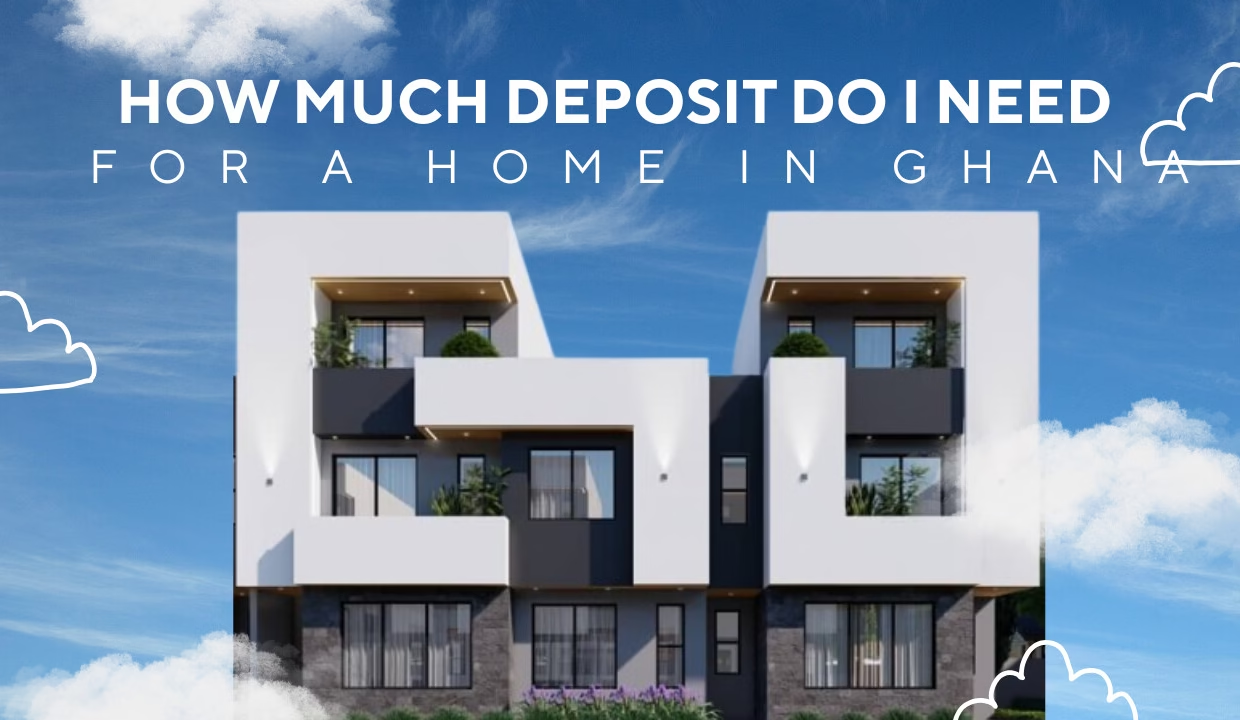
Buying a home is a significant milestone for many individuals and families. If you’re considering purchasing property in Ghana, one of the first questions you might have is: “How much deposit do I need for a home in Ghana?” Understanding the financial requirements is crucial for planning and ensuring a smooth home-buying process. This article will guide you through the essentials of home deposits in Ghana, helping you make an informed decision.
When buying a home in Ghana, it’s essential to understand the local real estate market and financial expectations. The process may differ from what you might be accustomed to if you’re coming from a different country. A home deposit is a critical component of this process.
What Is a Home Deposit?
A home deposit is an upfront payment made by the buyer to secure the purchase of a property. This payment is usually a percentage of the property’s total price. It demonstrates the buyer’s commitment and seriousness about purchasing the home.
Why Do You Need a Deposit?
The deposit acts as a financial assurance to the seller that you are committed to the purchase. It also reduces the lender’s risk, which can help you secure better terms for a mortgage if you need one.
How Much Deposit Is Required?
The amount of deposit required can vary based on several factors. Let’s break them down:
Standard Deposit Requirements
In Ghana, the typical deposit required for buying a home is around 20% of the property’s purchase price. This percentage is a standard expectation but may vary depending on the lender or the seller’s preferences.
Factors Influencing Deposit Amount
- Property Location: The location of the property can influence the deposit amount. Properties in high-demand areas might require a higher deposit due to increased competition.
- Property Type: The type of property, whether it’s a single-family home, apartment, or luxury estate, can also affect the deposit size.
- Negotiations: Sometimes, buyers can negotiate a lower deposit, especially if they have a strong financial standing or if the seller is motivated to sell quickly.
- Lender Requirements: Different banks and financial institutions may have varying requirements. It’s crucial to check with your lender for specific deposit requirements.
Financing Your Home Purchase
If you don’t have enough savings for the deposit, there are several ways to finance your home purchase in Ghana.
Mortgage Options
Most buyers in Ghana opt for a mortgage to finance their home purchase. A mortgage is a loan specifically designed for purchasing real estate. Here’s what you need to know:
- Eligibility: To qualify for a mortgage in Ghana, you typically need a stable income, a good credit score, and a down payment (deposit).
- Interest Rates: Mortgage interest rates in Ghana can vary. It’s advisable to shop around for the best rates and terms.
- Repayment Terms: Mortgage repayment terms can range from 3 to 20 years. Choose a term that aligns with your financial situation.
Savings and Investments
Building up your savings or liquidating investments can be an effective way to accumulate the necessary deposit for your home purchase. Consider setting up a dedicated savings account for this purpose.
Alternative Financing Options
Some buyers explore alternative financing options, such as personal loans or family assistance, to meet the deposit requirements. It’s essential to consider the pros and cons of each option and choose one that aligns with your financial goals.
The Home Buying Process in Ghana
Understanding the home buying process in Ghana will help you navigate the journey smoothly:
- Research and Budgeting: Begin by researching the real estate market and setting a budget that aligns with your financial capacity.
- Engage a Real Estate Agent: A qualified real estate agent can guide you through the process, helping you find properties that meet your criteria.
- Property Viewing and Selection: Visit potential homes and assess their suitability based on your needs and preferences.
- Making an Offer: Once you’ve found a suitable property, make an offer to the seller. This offer typically includes your proposed deposit amount.
- Due Diligence: Conduct thorough due diligence, including checking the property’s legal status, ownership, and any encumbrances.
- Closing the Deal: Upon agreement, you’ll finalize the sale, which involves paying the deposit, securing financing, and signing the necessary legal documents.
Tips for a Successful Home Purchase
- Start Saving Early: Begin saving for your deposit as early as possible. The more you save, the better your negotiating position.
- Ensuring prompt payment of existing line of credit: A good credit score can motivate lenders in providing you with mortgage facilities as well as improve your chances of securing favorable mortgage terms.
- Seek Professional Advice: Consult with financial advisors and real estate professionals to make informed decisions.
- Plan for Additional Costs: Besides the deposit, budget for additional costs such as legal fees, property valuation, and taxes.
Conclusion
Buying a home in Ghana requires careful planning and understanding of the local market. A deposit is a significant part of the home buying process, typically around 20% of the property’s value. By saving diligently, exploring financing options, and engaging professional help, you can successfully navigate the journey to homeownership in Ghana. With the right preparation, you’ll soon be stepping into your new home. Subscribe to our news letter for more interesting articles like this.
